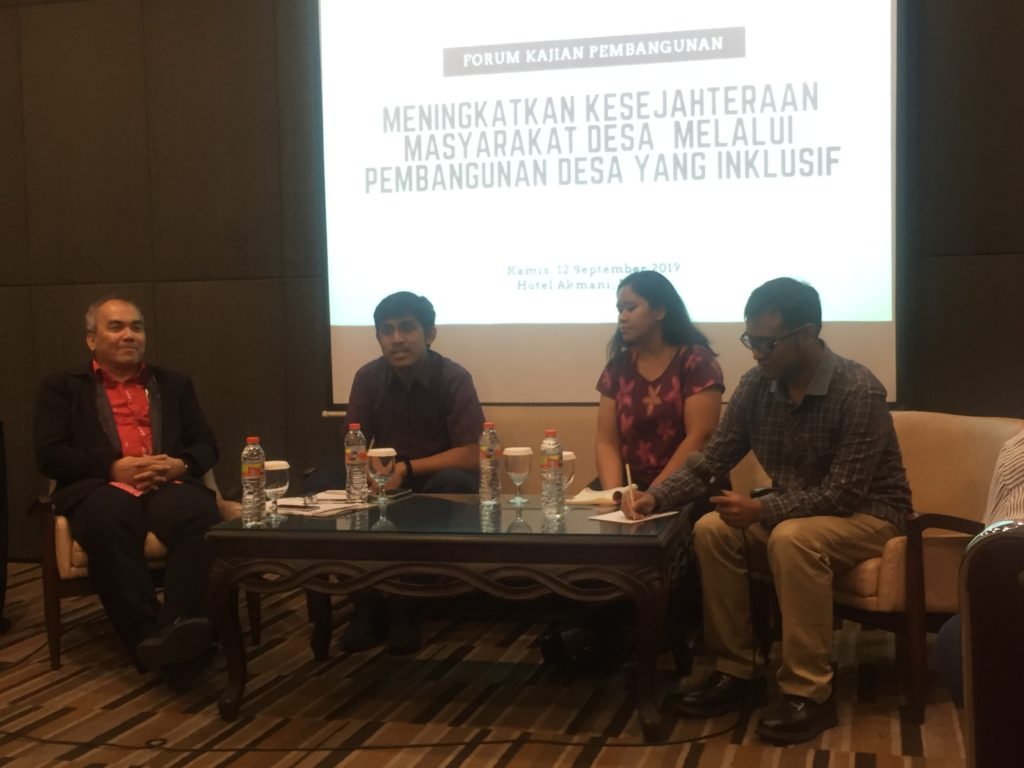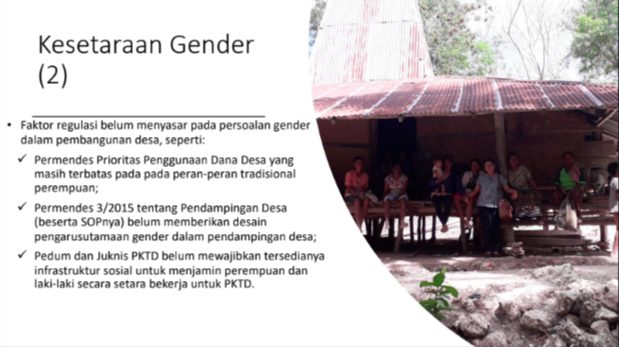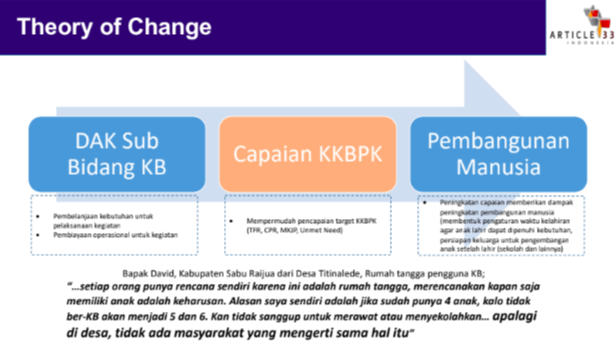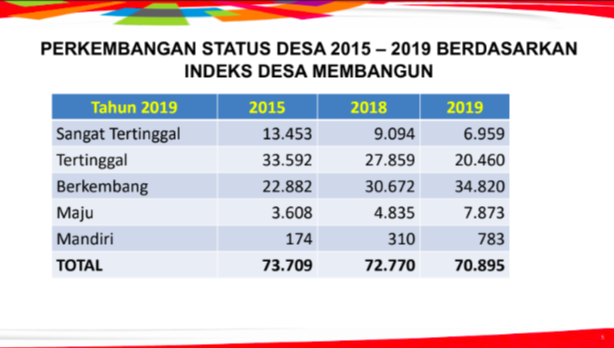 Developing and empowering villages have been one of the main focus of the government in recent years. To improve the welfare of village citizens, inclusive community participation is a vital component that needs to be ensured. On Thursday, 12 September 2019, Article 33 Indonesia hosted an FKP event in Hotel Akmani, Jakarta. The speakers were Yusuf Martak (Article 33 Indonesia), Agus Pratiwi (Article 33 Indonesia), and Herbert Siagian (Coordinating Ministry for Human Development and Culture).
Developing and empowering villages have been one of the main focus of the government in recent years. To improve the welfare of village citizens, inclusive community participation is a vital component that needs to be ensured. On Thursday, 12 September 2019, Article 33 Indonesia hosted an FKP event in Hotel Akmani, Jakarta. The speakers were Yusuf Martak (Article 33 Indonesia), Agus Pratiwi (Article 33 Indonesia), and Herbert Siagian (Coordinating Ministry for Human Development and Culture).
Yusuf Martak began the session with a presentation of a study that was conducted by Article 33 Indonesia in collaboration with BKKBN and UNFPA. This study evaluates the special allocation fund for family planning in supporting Indonesia’s population, family planning, and family development programs. Through a combination of rapid assessments, desk studies, focus group discussions (FGD), in-depth interviews, and observations in Jambi, Central Java, South Kalimantan, Maluku, and NTT, this study found that the main problem in improving the KKBPK program lies in the implementation stage. As a solution, Yusuf proposes strengthening the role of the district/city government, and optimizing the synergy between institutions.
 Next, Agus Pratiwi (Article 33 Indonesia) gave a gender perspective with her study on inclusive community engagement in the Cash Labor Intensive in Village (PKTD) Program, which was conducted in West Java and NTT. Pratiwi adopted Bowie and Bronte-Tinkew’s evaluation process so that the evaluation can be conducted while the program is being administered. This study also uses the GESI framework, which is a gender analysis framework that does not only analyze women’s participation, but also the gender barriers within the household, the village community, and the public arena. PKTD has opened wider opportunities for the community (especially the poor) to be involved in the planning process, including in the process of negotiating the use of village funds for wages. Even so, women’s roles in PKTD are still limited to traditionally female roles. However, the presence of female village facilitator figures has fostered the recognition and trust of the village community and village government in the ability of women in conducting infrastructure work.
Next, Agus Pratiwi (Article 33 Indonesia) gave a gender perspective with her study on inclusive community engagement in the Cash Labor Intensive in Village (PKTD) Program, which was conducted in West Java and NTT. Pratiwi adopted Bowie and Bronte-Tinkew’s evaluation process so that the evaluation can be conducted while the program is being administered. This study also uses the GESI framework, which is a gender analysis framework that does not only analyze women’s participation, but also the gender barriers within the household, the village community, and the public arena. PKTD has opened wider opportunities for the community (especially the poor) to be involved in the planning process, including in the process of negotiating the use of village funds for wages. Even so, women’s roles in PKTD are still limited to traditionally female roles. However, the presence of female village facilitator figures has fostered the recognition and trust of the village community and village government in the ability of women in conducting infrastructure work.
Last, Herbert Siagian shared the opportunities and challenges that are faced by the government in the effort to empower villages in Indonesia. Herbert began with data on the development of village funds distribution, which shows that the realization in the third stage is still very low. Regarding this matter, Herbert expressed his concern of the misappropriation of these funds. That aside, since 2015 significant number of villages have upgraded their status in 2019. The number of underdeveloped villages decreased by almost 50% from 2015 to 2019, the number of developed villages rose more than 100 percent, and despite the low proportions of independent villages, the number has significantly increased from 174 in 2015 to 783 villages in 2019. Recently, the government has also issued some new policies regarding village development and empowerment, which include the standardization of village apparatuses’ income, the reformulation of village funds for 2020, and the simplification of village financial reporting by interconnecting the Online Monitoring System of the Treasury and the State Budget (OMSPAN) with the Village Financial System Application (Siskeudes).
For the complete presentation and Q&A session, please refer to the video and materials provided.






